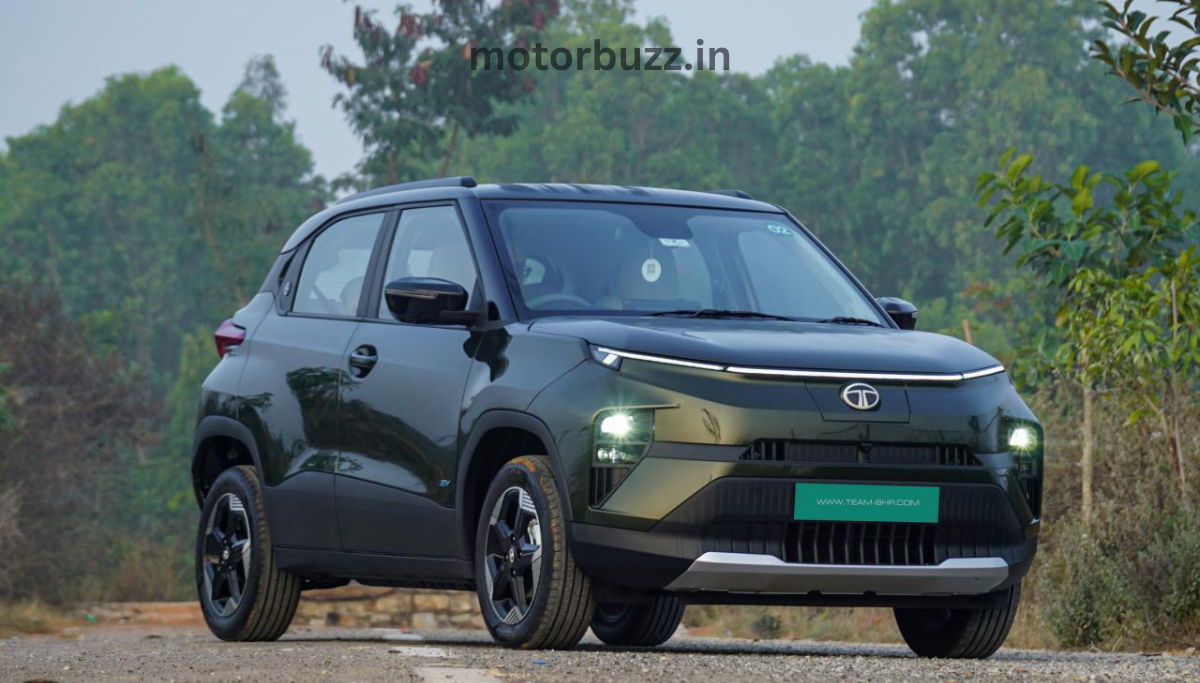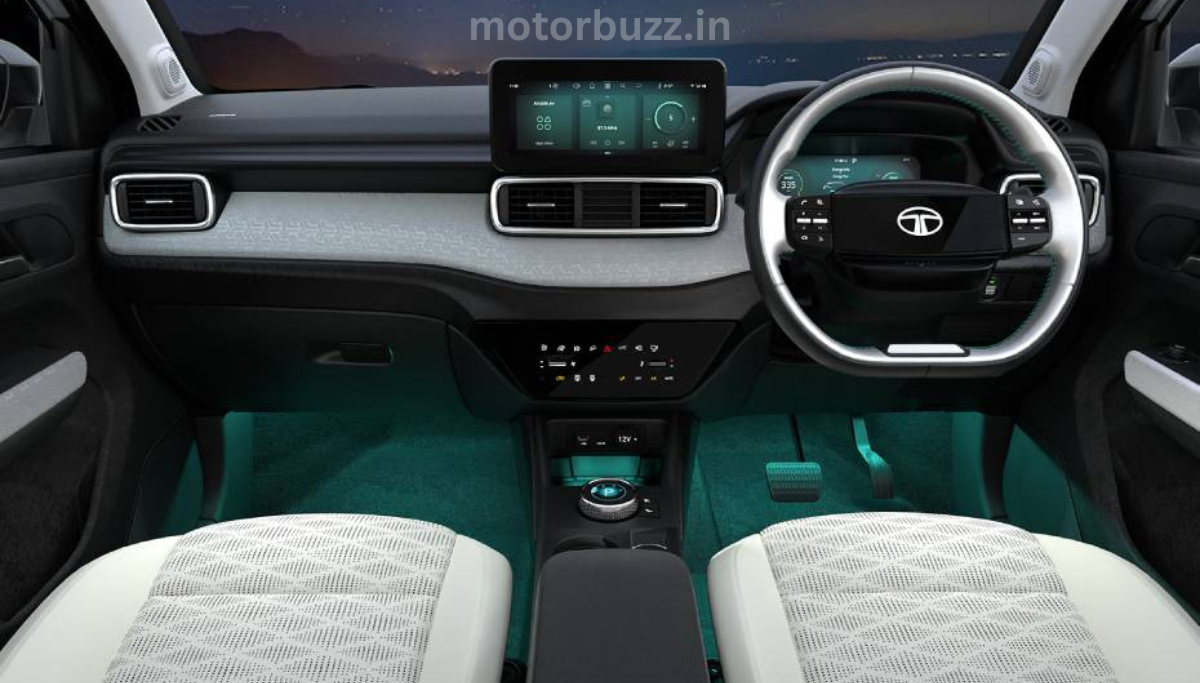Curious about how much it costs to charge the Tata Punch EV? This electric SUV has become popular with its affordability and eco-friendly vibe.
In this blog, we’ll break down the Tata Punch EV charging cost, compare it with competitors, and see how it stacks up against petrol and diesel models.
Tata Punch EV Charging Cost: What You’ll Pay
The Tata Punch EV is designed to keep your running costs low, making it a budget-friendly choice for city and highway driving.
It comes with two battery options: a 25 kWh battery (claimed range: 315 km) and a 35 kWh battery (claimed range: 421 km).
Charging costs depend on where you plug in and local electricity rates.
- Home Charging:
- At an average electricity rate of ₹8 per unit (kWh), a full charge for the 25 kWh battery costs ₹200, and the 35 kWh battery costs ₹280.
- In areas like Punjab with ₹10 per unit, the 35 kWh battery (factoring ~38 units due to charging inefficiencies) costs ₹380 for a full charge, giving a real-world range of 200-220 km in city conditions.
- Public Fast Charging:
- Costs range from ₹15-25 per kWh. For example, a 33% to 69% charge at a Zeon fast charger costs around ₹303, while a 45% to 90% charge at a Rebolt charger costs ₹408.
- Charging Time:
- 3.3 kW AC home charger: 9.4 hours (25 kWh) or 13.5 hours (35 kWh) for 10-100% charge.
- 7.2 kW AC wall box: 3.6 hours (25 kWh) or 5 hours (35 kWh).
- 50 kW DC fast charger: 56 minutes for 10-80% charge (both batteries).
For a 60 km daily commute, the Punch EV uses about 7 kWh (35 kWh battery), costing ₹70 at ₹10 per unit, or roughly ₹0.79-1.00 per km depending on driving conditions.
Also Read- Tata Punch CNG Facelift to launch in India very soon !
Features like regenerative braking boost efficiency, while a touchscreen infotainment system, six airbags, and a 360-degree camera add value.
Tata Punch EV vs. Competitors: Cost Comparison
The Tata Punch EV competes with compact SUVs like the Hyundai Exter, Maruti Suzuki Fronx, and Mahindra XUV300.

These rivals primarily offer petrol and diesel variants, with some hybrid options. Here’s how the Punch EV’s charging cost compares to the fuel costs of its competitors.
| Vehicle | Fuel Type | Efficiency | Cost per km (₹) |
| Tata Punch EV (35 kWh) | Electric | ~5 km/kWh | 1.00 |
| Hyundai Exter | Petrol | 19 kmpl | 5.00 |
| Maruti Suzuki Fronx | Petrol | 20 kmpl | 4.75 |
| Mahindra XUV300 | Diesel | 20 kmpl | 4.25 |
- Tata Punch EV charging cost: Costs ₹60-70 daily for 60 km (₹10/unit), with a real-world range of 200-350 km per charge.
- Hyundai Exter: Uses 3.16 liters for 60 km (19 kmpl), costing ₹300 daily at ₹95/liter.
- Maruti Suzuki Fronx: Consumes 3 liters for 60 km (20 kmpl), costing ₹285 daily.
- Mahindra XUV300: Needs 3 liters for 60 km (20 kmpl), costing ₹255 daily at ₹85/liter.
The Punch EV charging cost is 4-5 times lower than its rivals. However, its upfront cost (₹10.99-14.49 lakh) is higher than the Exter (₹6-10 lakh), Fronx (₹7.5-13 lakh), or XUV300 (₹8-13 lakh).
Also Read- Tata Punch CNG Real-World Mileage: How Far Can You Go?
Over 3-5 years, the EV’s savings on fuel and maintenance (no oil changes or clutch repairs) can offset this.
Tata Punch EV vs. Petrol: A Cost Breakdown
Let’s zoom in on the Tata Punch petrol variant (1.2L, ~18 kmpl) to see how the EV compares. Petrol prices in India (2025) hover around ₹95 per liter.
- Petrol Punch:
- For 60 km, it uses 3.33 liters (18 kmpl), costing ₹316 daily or ₹9,480 monthly (30 days).
- Per km cost: ₹5.27.
- Annual cost (21,600 km): ₹1,13,832.
- Punch EV (35 kWh):
- For 60 km, it uses ~7 kWh, costing ₹70 daily (₹10/unit) or ₹2,100 monthly.
- Per km cost: ₹1.00.
- Annual cost (21,600 km): ₹25,920.
Savings: The Tata Punch EV charging cost saves ₹87,912 annually over the petrol variant. Petrol refueling is quicker (5-10 minutes vs. 56 minutes for fast charging), but the EV’s lower costs and features like instant torque and zero emissions make it ideal for city drivers with home charging access.
Tata Punch EV charging cost vs. Diesel !
Now, let’s compare the Punch EV charging cost with a diesel compact SUV like the Mahindra XUV300 (20 kmpl, ₹85/liter).

- Diesel XUV300:
- For 60 km, it uses 3 liters, costing ₹255 daily or ₹7,650 monthly.
- Per km cost: ₹4.25.
- Annual cost (21,600 km): ₹91,800.
- Punch EV (35 kWh):
- For 60 km, it uses ~7 kWh, costing ₹70 daily or ₹2,100 monthly.
- Per km cost: ₹1.00.
- Annual cost (21,600 km): ₹25,920.
Savings: The Tata Punch EV charging cost saves ₹65,880 annually over the diesel XUV300. Diesel vehicles have better fuel efficiency than petrol in city traffic, but the EV’s regenerative braking gives it an edge in stop-go conditions.
The trade-off is charging infrastructure—diesel pumps are more common than fast chargers, but home charging makes the EV unbeatable for daily commutes.
Why Choose the Tata Punch EV?
The Tata Punch EV shines with its low charging costs, making it a smart pick for budget-conscious drivers. At ₹200-380 per full charge, it costs just ₹0.79-1.00 per km, compared to ₹4.25-5.27 per km for petrol and diesel rivals.
Its 25 kWh and 35 kWh batteries offer flexibility, with charging times ranging from 56 minutes (fast charger) to 13.5 hours (home).
Features like a touchscreen, six airbags, and regenerative braking add value. While the upfront cost is higher, the Punch EV saves ₹65,000-88,000 annually over petrol and diesel for a 60 km daily commute.


gnoesqjdjvttsslwiithsymyozetdk